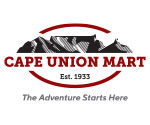Perspective
Clothing retail is an important part of the South African economy, a substantial creator of direct and indirect employment and a significant contributor to government funding. Here is a perspective covering issues and developments affecting the sector.
Increasing local sourcing
In 2018, the Federation engaged with the Department of Trade, Industry and Competition to take a closer look at how the retail clothing sector worked. Flowing from that engagement the Retail Clothing, Textile, Footwear, and Leather (R-CTFL) Master Plan has now been in operation for more than five years. It involves the entire value chain, focuses on commercially sustainable ways of responsible local sourcing and has already seen retailers’ collective local purchasing increase from 35% to over 45%. While we will always have imported products on shelves and websites—an essential aspect of healthy competition—we aim to be as competitive as possible while also fostering local development.
The department is now implementing the R-CTFL Masterplan 2030 which is aimed at encouraging structural changes in the value chain to grow the domestic market, increase purchases from domestic suppliers, access and grow export markets and enhance value chain competitiveness. Its vision is to develop a competitive, sustainable and dynamic R-CTFL value chain that provides its customers with compelling products and that is invested in growing employment and advancing inclusion and transformation.
The masterplan is aimed to grow employment to 330 000 R-CTFL jobs through growing local retail sales to R250 billion, to expand local retail procurement of local CTFL products from 45% to 65%, equalling an increase from R32 billion to R 66 billion in ten years, and to improve competitiveness, technology, skills and transformation.
In support of that, the Cape Clothing & Textile Cluster (CCTC) has launched “Origin8: From Start-up to Scale-up”, a programme that is designed to advance small and medium-sized enterprises (SMEs) in the CTFL sector. Backed by the City of Cape Town’s Growth Coalitions Branch, the programme aims to expose promising SMEs to major national retailer requirements, helping them to bridge the gaps that exist in their business to better align with industry standards and customer expectations.
As retailers look to diversify their sourcing and onshore product, it is critical that the local value chain has the capacity and capabilities to respond. This calls for a strong pipeline of future suppliers. The CCTC programme will start this pipeline development and ensure that small businesses have a compelling value proposition to potential customers.
The programme offers SMEs the opportunity to engage directly with major national retailers, gaining valuable insights into the critical questions that customers ask when assessing new suppliers, and the common challenges that need to be overcome to unlock procurement opportunities. The SME participants will also be equipped with practical tools to better align their business offering.
The Western Cape clothing industry has united behind a proposal to re-establish local clothing manufacturing by creating new quick-response clothing factories in an arc of small towns around Cape Town that can compete with cheap imports. It could provide the province with a way to mop up many thousands of unemployed entry-level workers (especially unskilled youths without matric) in semirural places that other big job creators, such as tourism and call centres, can’t reach.
Collaborating with trade unions
Our collaboration with trade unions to develop fair labour practices and policies has improved working conditions in the retail sector. These efforts demonstrate our commitment to fostering a thriving, equitable, and sustainable clothing retail industry. Our collaboration extends to determining how best the goals of the industry masterplan can be achieved through investment in skills development and in technology that allows production at scale.
Levelling the playing field
The Federation’s primary mission is to ensure that the commercial, economic, and trade frameworks within which clothing retailers operate are structured in the best interests of all parties involved. Recent Federation investigations indicated that e-commerce retailers were not paying the correct duty and VAT to the South African Revenue Service and have resulted in policy enforcement.
The imbalance arose from an oversight in application of the duty. Decades ago, when small parcels arrived, the revenue system deemed it too cumbersome to calculate the duty on these small shipments. Consequently, they either applied a zero rating or a 20 per cent rating instead of the correct 45 per cent duty plus 15 per cent VAT. This oversight created a gap in the market which was exploited over time by offshore online retailers. The volume of small parcels exploiting this gap grew substantially, turning a minor oversight into a significant market segment and impacting revenue collection and creating an uneven playing field.
This imbalance was problematic for local retailers and manufacturers, as well as for those offshore manufacturers who complied with duty requirements.
Enforcing the policy measure on packages under R500 will support the local manufacturing sector by reducing the unfair advantage previously enjoyed by some offshore retailers, thereby fostering a more equitable and sustainable market environment.
For South African consumers who have benefitted from the gap in the market, the new tax measures will unfortunately result in price increases for purchases from offshore e-commerce websites. However, this change is part of a broader effort to create a more accountable and fair market environment for all consumers.
In the bigger picture, these measures will ensure that South African consumers are protected by the country’s robust consumer protection legislation. There is a concern about offshore operators without a local presence, as they do not provide the same level of consumer protection and recourse that local South African-based operators, whether locally or internationally owned, are required to offer. This move aims to enhance consumer safety and ensure fair competition within the market.
Retailers will continue to strive to offer the best deals to consumers, whether the products are purchased from a physical store or an online platform. The commitment to competitiveness and providing value to consumers will remain a key focus for South African retailers.
Expanding the value chain
Federation member retailers work very closely within the Southern African Customs Union (SACU), the oldest customs union in the world. This historical precedent enables members to collaborate effectively to benefit the entire value chain within the customs union. Additionally, we have developed strong relationships with the Southern African Development Community (SADC), which includes countries as far north as Tanzania and the Democratic Republic of Congo. Through this community, we are increasingly expanding the value chain. Furthermore, we engage with the AfCFTA to advocate for beneficial trade policies.
Locally, we engage in policy discussions to assist the government in developing policies that support the growth and sustainability of the value chain. Our interactions with the trade union movement are frequent.
Our work with SACU and SADC to streamline trade regulations and reduce tariffs on imported clothing items has not only made goods more affordable for consumers but also supported the local textile industry by providing more competitive market conditions.
Developing knitted fabric manufacturers
The Federation is closely monitoring the production of certain types of fabric. The knitted fabric community has struggled to gain traction but is now making significant progress thanks to implementation of rebates and our collaboration with woven fabric textile producers. For the knitted fabric textile producers, we are hopeful about introducing a rebate mechanism that will encourage local sourcing. This would allow local producers to receive credit for importing fabric without duty, potentially providing substantial benefits to the local knit fabric industry.









